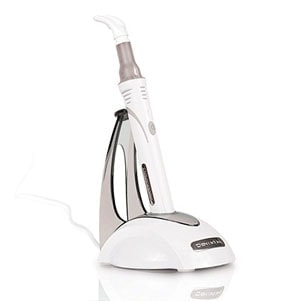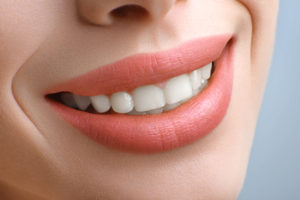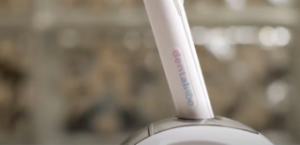There are dozens of different toothpaste types available on the market. And, every once in a while, a new toothpaste “trend” seems to pop up. For example, charcoal toothpaste was everywhere a few years ago. But as we all know, just because something is trendy doesn’t mean it’s actually good for you.
Does it really matter what type of toothpaste you use? For most people, yes. Your toothpaste helps protect and strengthen your teeth. If you have a specific dental issue, some toothpaste types might be better for you than others.
We break down the most frequently asked questions about toothpaste so you can get a better understanding of what type you should be using.
What is anticavity toothpaste?
Some individuals are more prone to cavities. Often, these people have softer enamel, which makes it easier for bacteria to penetrate the tooth and result in a cavity. If you’re constantly struggling with cavities, you might want to consider an anticavity toothpaste.
Anticavity toothpaste typically has slightly higher levels of fluoride. The fluoride amount remains at a safe level for everyday use. The increase in fluoride offers extra protection that helps reduce the risk of future cavities.
An anticavity toothpaste cannot fix existing cavities. You should use anticavity toothpaste for prevention, but you’ll need to visit a dentist if you have existing cavities. Early cavities can sometimes go away with proper oral hygiene, but developed cavities can worsen and cause more damage. It’s best to get a professional’s opinion on cavity treatment. Need a dentist? Visit our directory to find a certified pain-free DentalVibe dentist in your area.
Is no-fluoride toothpaste good?
In recent years, there has been a significant shift to using more natural products. People want more natural ingredients in their food, skincare products, and hygiene products like toothpaste. And while it’s good to be concerned about putting natural ingredients into your body, there are times when science should prevail.
Fluoride has been used for the past 70 years in the United States. It’s added to most water supplies, as well as toothpaste. And the benefits have been clear. Fluoride has been proven to help protect against cavities by strengthening tooth enamel. According to some studies, the presence of fluoride in our water systems has reduced tooth decay by 25% in adults and children.
Additionally, fluoride is actually a natural ingredient — it’s a mineral found in many water sources, such as oceans, rivers, and lakes. So, people shouldn’t be scared of using fluoride toothpaste.
No-fluoride toothpaste simply cannot be as effective as toothpaste with fluoride in it. The American Dental Association (ADA) approves of fluoride and encourages individuals to choose fluoride toothpaste to improve their oral health.
What is the best toothpaste for tartar control?
Our mouth naturally produces bacteria that can cling to our teeth. This bacteria is known as plaque, and if it’s left for a while, it can harden into something known as tartar. When an individual has tartar on their teeth, it can be incredibly hard to remove. And if left unaddressed, tartar can develop underneath the gums and result in gum disease.
If you are prone to tartar buildup, you could benefit from tartar control toothpaste. There are many toothpaste brands on the market for tartar control. The best toothpaste will include chemical compounds of pyrophosphates, zinc citrate, or the antibiotic triclosan. These ingredients help break down the tartar and reduce the bacteria in your mouth so more tartar doesn’t build up.
Does tartar control toothpaste really work?
Tartar control toothpaste is most effective in the early stages of tartar buildup. Tartar control toothpaste has added strong and vital chemicals that help break down the tartar on your teeth. If you practice regular oral hygiene with a tartar control toothpaste, it can make a good dent in the tartar buildup on your teeth.
Unfortunately, if the tartar has bypassed your teeth and developed into your gums, this toothpaste can’t help. Toothpaste can’t reach underneath your gums, so it won’t be effective.
Consider tartar control toothpaste a preventive measure. You should still visit your dentist every six months for a check-up and a cleaning, at which point they can address your tartar situation. After your appointment, if your dentist tells you that you’re prone to tartar, you could switch to a tartar control toothpaste.
Which is the best whitening toothpaste?
With so many whitening toothpaste options out there, how are you supposed to decide which to buy? First, we recommend choosing a brand with the American Dental Association (ADA) stamp of approval. Toothpaste without this stamp isn’t necessarily bad or ineffective, but there’s more assurance when choosing an ADA-approved brand.
Next, you’ll want to review the ingredients. A whitening toothpaste should have hydrogen peroxide in it to be effective. The higher the hydrogen peroxide content, the more likely the toothpaste will offer noticeable results. However, hydrogen peroxide can irritate some people’s gums. If you suspect gum irritation will be a problem for you, find a whitening toothpaste that also includes silica. Silica is an essential active ingredient for people with sensitive teeth and gums.
Do whitening toothpastes really work?
Yes, whitening toothpaste can really work. However, it should be noted that these products have a limit to how effective they can be. Usually, whitening toothpaste can remove surface-level stains, such as from coffee, tea, red wine, and soda. However, a whitening toothpaste cannot remove deeper stains or change the entire color of your teeth.
For more dramatic results, consider talking to your dentist about cosmetic teeth whitening.
What is desensitizing toothpaste?
Desensitizing toothpaste is meant for people with sensitive teeth. It’s estimated that one in eight people in the United States has overly sensitive teeth. This can make eating hot or cold foods painful.
Desensitizing toothpaste has active ingredients that help block the pain signals that the surface of the tooth sends to the sensory nerves inside.
What is the best desensitizing toothpaste?
Desensitizing toothpastes need certain active agent ingredients to be effective. The best desensitizing toothpaste will contain potassium nitrate and sodium fluoride. Potassium nitrate helps clog the tubules in teeth, preventing the fluid from flowing to the dental sensory nerves and alerting the brain to pain. Sodium fluoride works to strengthen any exposed dentin by forming a barrier that helps desensitize the teeth.
A product with strontium salts can also help in the desensitizing process.
How long does it take for desensitizing toothpaste to work?
Individuals need to use their desensitizing toothpaste twice a day and regularly. It can take up to two weeks to experience noticeable relief. This is because it takes a while to build up a strong barrier to the tooth’s nerve.
Is sensitive toothpaste bad for your teeth?
Sensitive toothpaste isn’t bad for your teeth. These types of toothpaste often have additional chemicals that help strengthen your enamel, while also reducing your tooth sensitivity.
The only potential adverse side effect is that sensitive toothpaste might become so effective you forget that you have tooth sensitivity issues. Since tooth sensitivity can often be a sign of more significant dental problems, always remember to continue with your regular dental checkups.
Can I use sensitive toothpaste every day?
Yes, individuals can use sensitive toothpaste daily — twice a day even.
What is the best toothpaste for receding gums?
Gum recession is when the gums around the tooth start to push back, revealing more of the teeth. People with receding gums often feel they have a smile that is “too toothy.” If receding gums aren’t treated, they can lead to more gum recession, as well as bone and tooth loss.
Potential causes for receding gums include the natural aging process, brushing too hard, and poor oral hygiene. Unfortunately, you can’t grow more gum tissue, so receding gums can’t be reversed. Instead, it’s important to treat the condition as soon as you notice it before it gets worse.
Your dentist may offer a few treatments for receding gums. One of the preventive measures you can take is to keep up with a consistent and healthy oral hygiene routine. The best toothpaste for receding gums is one that tackles bacteria to ensure your exposed nerves aren’t further damaged. Use a gentle toothbrush and always brush with fluoride toothpaste that is ADA approved. These toothpastes tackle plaque the best.
What is the healthiest toothpaste?
There are plenty of “healthy, natural, organic” brands out there that want you to believe their product is the healthiest. At the end of the day, the toothpaste that is healthiest for you is the most effective one. You need a toothpaste that will protect your teeth and gums, so you don’t develop oral hygiene issues.
Our recommendation for the healthiest toothpaste includes fluoride and is ADA certified.
What toothpaste do most dentists recommend?
Dentists aren’t usually loyal to one toothpaste brand over another. Instead, they’ll generally recommend any toothpaste brand that contains fluoride. If you have a specific dental issue, such as tooth sensitivity, your dentist may recommend a brand that has worked well for other patients.
Do dentists recommend charcoal toothpaste?
Charcoal toothpaste became a big hit a few years ago. Many charcoal toothpaste brands claim that charcoal helps “whiten teeth naturally.” In reality, there isn’t enough scientific evidence to support or deny these claims. Dentists are aware of the lack of evidence and generally warn patients that they’re unlikely to see the results they expect from these products. Some studies have also found that charcoal toothpaste may be too abrasive, and can damage tooth enamel.
If you’re concerned about what toothpaste you should be using, consult a dentist. Your dentist will offer you guidance based on the unique dental issues you’re battling. Need a dentist in your area? Visit our directory to find a certified pain-free dentist today.
















